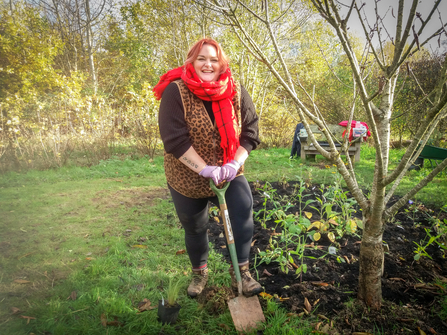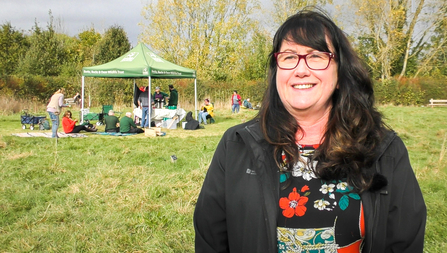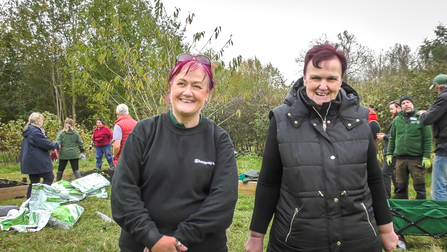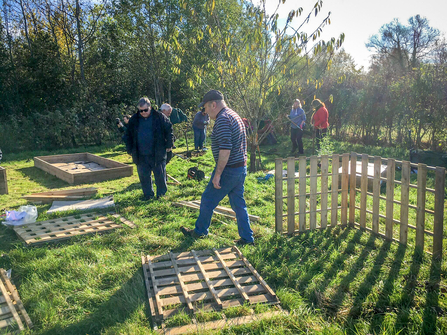Anyone can use the raised beds and plots at a community orchard near Newbury to grow fruit, vegetables, herbs or flowers. It is hoped that users will benefit from the therapeutic effects of gardening - but also some of the plants already being grown there.
The Berks, Bucks and Oxon Wildlife Trust (BBOWT) has created the garden at its Nature Discovery Centre (NDC) in Thatcham. The initiative is part of the Trust's Engaging With Nature project, which uses the power of nature to help people with mental health problems. The garden, which aims to be 'for people and wildlife', was established in a corner of the NDC’s community orchard.




